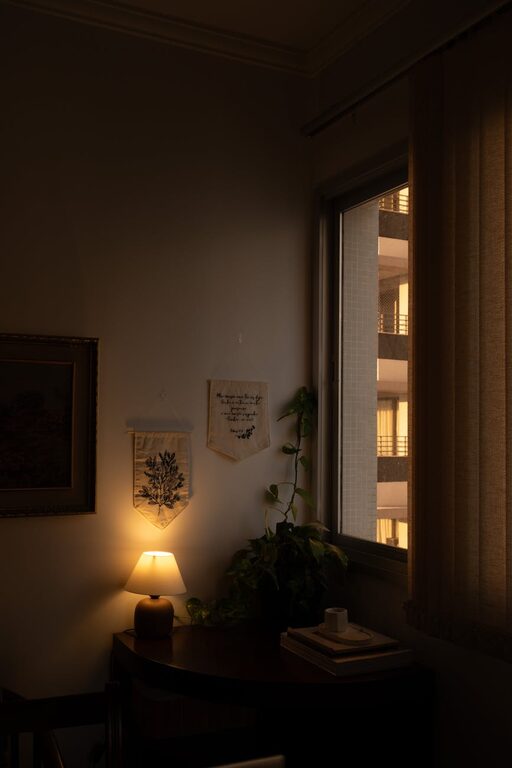Small Changes for a Calmer Evening Routine

Creating a calm and relaxing evening routine can significantly improve your overall well-being and quality of sleep. In our busy lives, it’s easy to rush through the end of the day without giving ourselves time to unwind. However, making small changes to your nighttime habits can help you transition from a busy day to a restful night more smoothly. This guide shares practical steps to help you build a calmer, more intentional evening routine.
Why a Calmer Evening Routine Matters
Evening routines help signal to your brain that it’s time to relax and prepare for rest. When you incorporate calming activities, you reduce stress and anxiety levels, improve sleep quality, and wake up feeling more refreshed. The key is consistency and choosing activities that suit your lifestyle and preferences.
1. Dim the Lights and Create a Cozy Atmosphere
Light plays an important role in our body’s internal clock. Bright screens and overhead lights can trick your brain into thinking it’s still daytime, making it harder to wind down.
– Use soft, warm lighting such as lamps or fairy lights.
– Consider using candles (safely) or a Himalayan salt lamp for a warm glow.
– Turn off harsh overhead lights at least an hour before bed.
This shift in lighting helps your body start producing melatonin, the hormone responsible for making you sleepy.
2. Unplug from Screens Early
The blue light emitted by phones, tablets, and computers interferes with melatonin production and can keep you alert.
– Try to stop using electronic devices at least 30 to 60 minutes before bedtime.
– If you must use devices, enable blue light filters or night modes.
– Replace screen time with calming activities like reading a physical book or listening to gentle music.
Unplugging sooner supports a natural transition toward sleepiness.
3. Establish a Gentle Movement Practice
Incorporating some light physical activity during the evening can relax tense muscles and calm your mind.
– Choose activities like gentle yoga stretches, tai chi, or a slow walk.
– Keep sessions short—10 to 15 minutes is enough to help release the day’s tension.
– Focus on breathing deeply and moving mindfully.
Avoid vigorous exercise close to bedtime, as it can have the opposite stimulating effect.
4. Practice Mindfulness or Relaxation Techniques
Taking time to center yourself can reduce stress and ease your mind.
– Try a guided meditation designed for sleep.
– Use deep breathing exercises—inhale for 4 counts, hold for 4, exhale for 6.
– Practice progressive muscle relaxation by tensing and releasing muscle groups slowly.
Even a few minutes of mindfulness before bed can promote calm and improve sleep quality.
5. Create a Simple, Soothing Skincare or Self-Care Ritual
A sensory-focused routine can help your brain associate certain actions with relaxation.
– Wash your face and apply moisturizers softly and slowly.
– Lightly massage your hands, feet, or shoulders.
– Use calming scents like lavender or chamomile through essential oils or lotions.
These small acts not only care for your body but give you permission to slow down.
6. Limit Stimulating Food and Drinks
What you consume in the evening affects your ability to relax.
– Avoid caffeine and high-sugar snacks late in the day.
– Choose herbal teas such as chamomile or peppermint.
– If you’re still hungry, opt for a light snack rich in tryptophan or magnesium like a small banana or a handful of almonds.
Being mindful of your intake helps reduce nighttime restlessness.
7. Prepare Your Space for Rest
Your bedroom environment plays a strong role in your ability to unwind.
– Keep your room cool, dark, and quiet.
– Use blackout curtains or an eye mask to block light.
– Consider a white noise machine or earplugs if you’re sensitive to sounds.
– Remove clutter to create a peaceful atmosphere.
Designing a restful space primes your brain for relaxation and sleep.
8. Set a Consistent Bedtime
Going to bed and waking up at similar times each day supports your natural sleep cycle.
– Try to keep a consistent schedule, even on weekends.
– Set an alarm for a wind-down reminder if needed.
– Avoid staying up too late catching up on work or entertainment.
Consistency reinforces your body’s internal clock and makes falling asleep easier.
Sample Calm Evening Routine
Here’s an example of how you might structure your evening:
– 7:00 PM: Dim lights and put away devices.
– 7:15 PM: Prepare a cup of herbal tea.
– 7:30 PM: Gentle yoga or stretching session.
– 7:45 PM: Skincare and self-care ritual.
– 8:00 PM: Read a book or listen to calming music.
– 8:30 PM: Meditation or deep breathing exercises.
– 8:45 PM: Prepare bedroom for rest and get into bed.
– 9:00 PM: Lights out and sleep.
Adapt timing and activities to fit your schedule and preferences.
Final Thoughts
A calmer evening routine is a wonderful way to nurture yourself and set the stage for restorative sleep. The best approach is to start small—choose one or two changes to implement and build from there. Over time, these gentle habits will become natural signals to your body that it’s time to relax, helping you end your day on a peaceful note.
Remember, the goal is not perfection but progress. Celebrate the moments of calm and enjoy the benefits they bring to your overall well-being. Sweet dreams!




